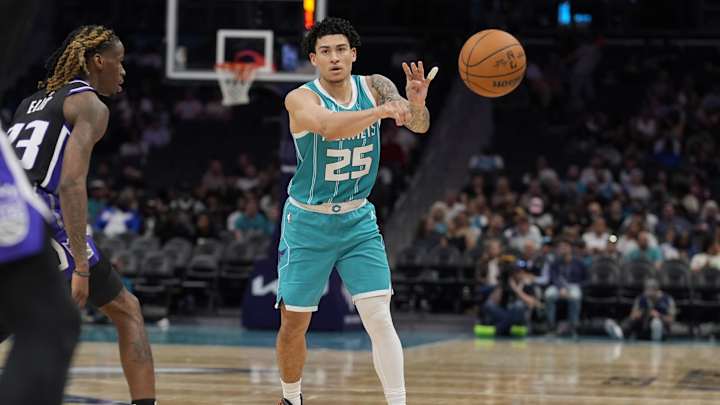In the evolving landscape of the National Basketball Association, the strategic utilization of two-way contracts has become an indispensable element for franchises aiming to cultivate talent and enhance roster flexibility. These crucial agreements allow teams to retain promising young players, nurturing their development without the immediate burden of guaranteed long-term salaries, a critical advantage in today’s salary-cap sensitive league.
The Charlotte Hornets, recognizing the profound value of this mechanism, have proactively filled every available two-way spot on their roster. While there was anticipation regarding the potential acquisition of a traditional big man, each player secured through these innovative deals is deemed exceptionally valuable, providing essential depth and contributing significantly to the team’s overall strategic build.
One of the more unexpected additions to the Charlotte Hornets’ two-way roster was Antonio Reeves, whose selection initially surprised many observers. Given the team’s acknowledged deficiency in frontcourt depth, it was widely speculated that the final two-way slot might be allocated to a big man, or perhaps even to a standout performer from Summer League like Jaylen Sims, making Reeves’ inclusion a notable deviation from perceived expectations.
Primary concerns surrounding Antonio Reeves often center on his defensive capabilities and his relative age as an NBA prospect. During the previous season, Reeves exhibited notable struggles on the defensive end, particularly when matched against quicker, more agile opponents. At 24 years old, there is a prevailing sentiment that the guard may be nearing, or has already reached, his developmental ceiling, limiting his long-term growth potential.
Despite these defensive question marks, Antonio Reeves offers tangible offensive value that aligns with the Charlotte Hornets’ evolving scheme. His proficiency in spacing the floor is a significant asset, crucial for facilitating ball movement and creating driving lanes within Coach Charles Lee’s offensive system. Furthermore, Reeves provides commendable depth on the wing, a critical component for maintaining competitive lineups throughout a demanding NBA season.
Another key figure within the Charlotte Hornets’ two-way initiative is KJ Simpson, a talented guard selected by the team out of Colorado in the second round last year. Simpson spent his entire prior season under a two-way contract, demonstrating his commitment to the development pathway. During his 36 appearances for the Buzz, the 22-year-old guard averaged 7.8 points, though on efficiency splits that were considered below average.
KJ Simpson represents a strategic investment in the Charlotte Hornets’ future player development. His continued growth, particularly in refining his offensive efficiency and defensive consistency, will be vital. As an NBA prospect, Simpson’s trajectory is closely monitored, with the hope that his time on a two-way deal will culminate in a significant impact at the professional level, solidifying his role within the team’s core rotation in upcoming seasons.
The strategic commitment to these NBA two-way contracts underscores the Charlotte Hornets’ forward-thinking approach to roster construction. By meticulously identifying and developing talents like Antonio Reeves and KJ Simpson, the franchise is not merely filling roster spots but actively cultivating a sustainable pipeline of talent designed to foster long-term success and competitive resilience within the demanding landscape of the National Basketball Association.






Leave a Reply